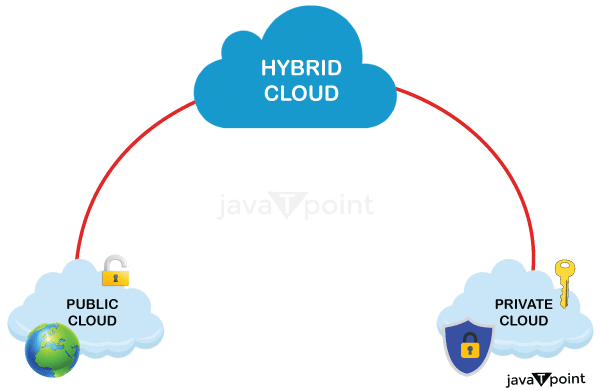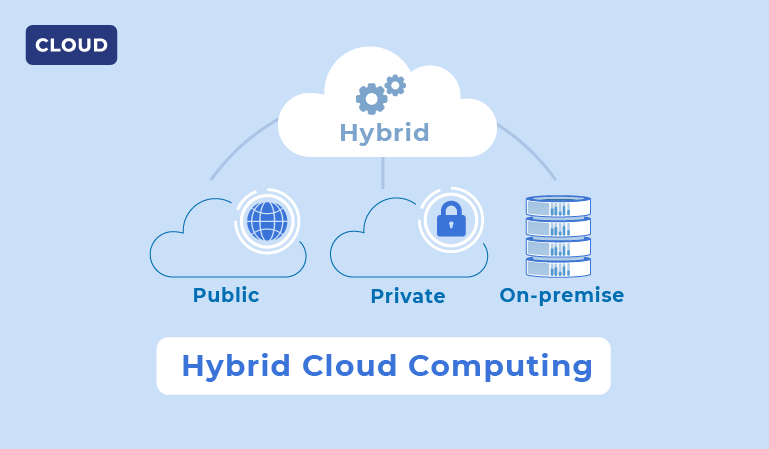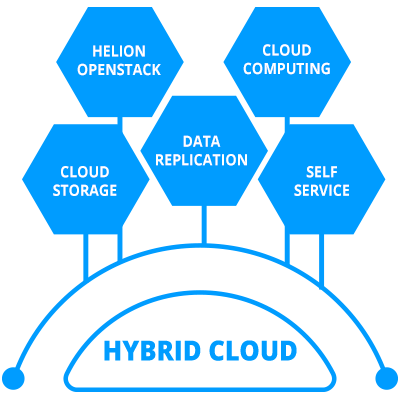In today's digital age, organizations across industries are increasingly turning to cloud computing to streamline operations, enhance scalability, and drive innovation. Cloud computing offers businesses the flexibility to store, manage, and access data and applications remotely, eliminating the need for on-premises infrastructure. Among the various cloud models, public cloud, private cloud, and hybrid cloud solutions have emerged as popular choices for organizations seeking to optimize their IT infrastructure. In this blog post, we will explore these cloud models, shed light on their benefits, and understand how hybrid cloud solutions combine the best of both public and private clouds.
Public cloud and private cloud: an overview
Public cloud: The public cloud refers to a cloud infrastructure that is owned and operated by a third-party cloud service provider. In this model, multiple organizations share the same computing resources, such as servers and storage, over the internet. The service provider manages and maintains the infrastructure, allowing users to access resources on a pay-as-you-go basis. Public cloud solutions offer scalability, cost-effectiveness, and ease of deployment, making them ideal for startups, small businesses, and projects with fluctuating resource requirements.
Private cloud: Unlike the public cloud, a private cloud is dedicated solely to a single organization. It can be hosted on-premises or managed by a third-party service provider. Private clouds offer greater control, security, and customization options, making them suitable for enterprises with stringent data privacy and compliance requirements. Private cloud solutions are often used by government agencies, financial institutions, and large enterprises.
Hybrid cloud: the best of both worlds
Hybrid cloud: Hybrid cloud solutions bring together the strengths of both public and private clouds, offering a flexible and balanced approach to cloud computing. In a hybrid cloud environment, organizations can leverage both public and private cloud infrastructures while maintaining seamless connectivity between them. This allows businesses to take advantage of the scalability and cost-effectiveness of the public cloud for non-sensitive data and applications, while keeping critical or sensitive data and applications in the more secure private cloud.
Benefits of hybrid cloud solutions
1. Flexibility: Hybrid cloud solutions offer the flexibility to scale resources up or down according to changing business needs. Organizations can leverage the on-demand scalability of the public cloud during peak periods, while keeping control over sensitive data in the private cloud.
2. Enhanced security: Hybrid cloud solutions provide the ability to keep sensitive data and critical applications in the private cloud, ensuring enhanced security and compliance. By integrating the public and private clouds, businesses can establish secure connections and implement robust data encryption mechanisms.
3. Cost optimization: Hybrid cloud solutions enable organizations to optimize costs by utilizing the public cloud for non-critical workloads and leveraging the more cost-efficient private cloud for sensitive workloads. This allows businesses to achieve a balance between cost savings and data security.
Conclusion
As organizations continue to adopt cloud computing, understanding the different cloud models and their benefits is crucial. While the public cloud offers scalability and cost-effectiveness, the private cloud provides enhanced security and control. However, the hybrid cloud emerges as an ideal solution, combining the advantages of both models. By leveraging hybrid cloud solutions, organizations can achieve flexibility, enhanced security, and cost optimization, enabling them to maximize the benefits of cloud computing while addressing specific business requirements.




0 Comments